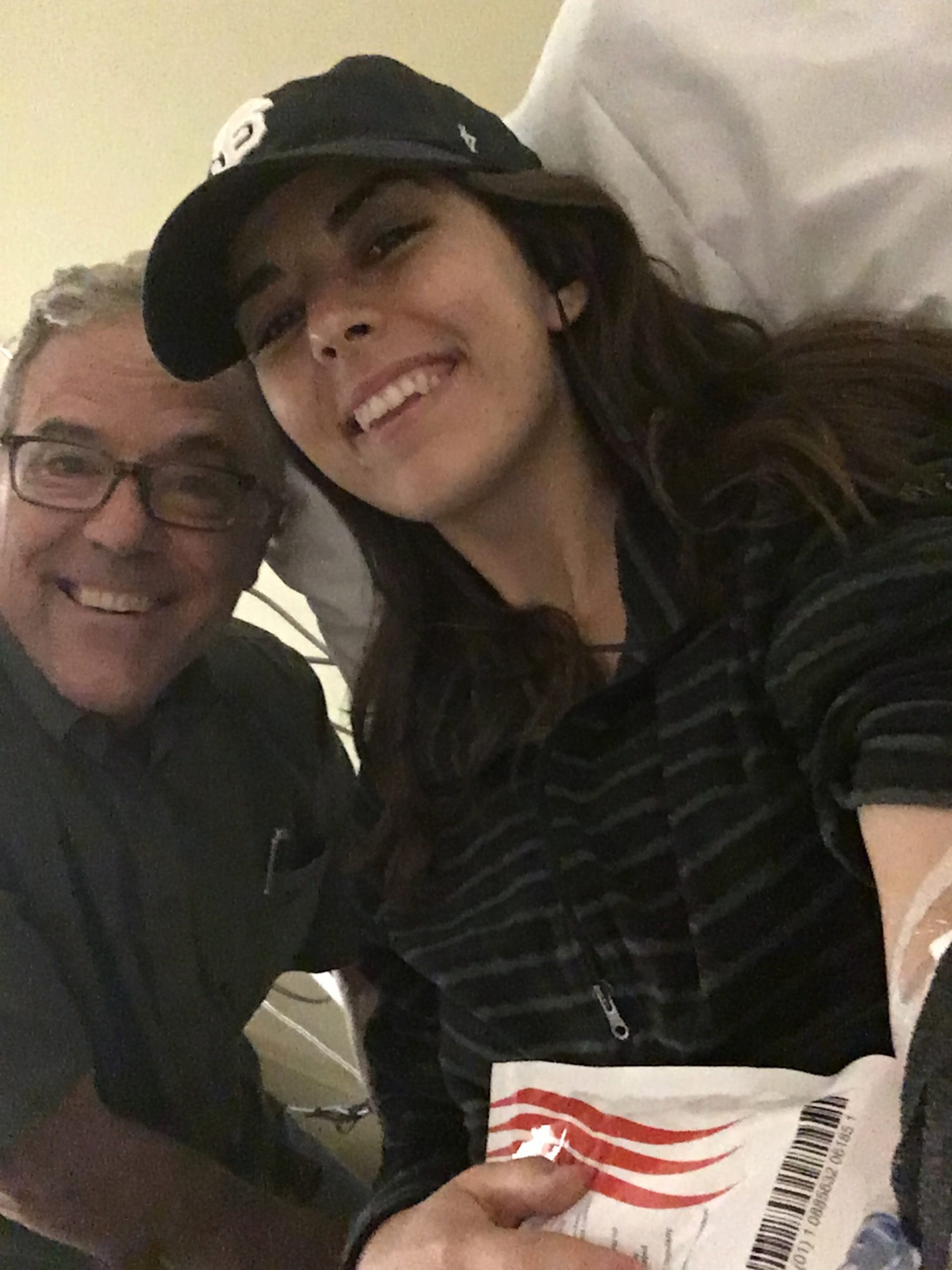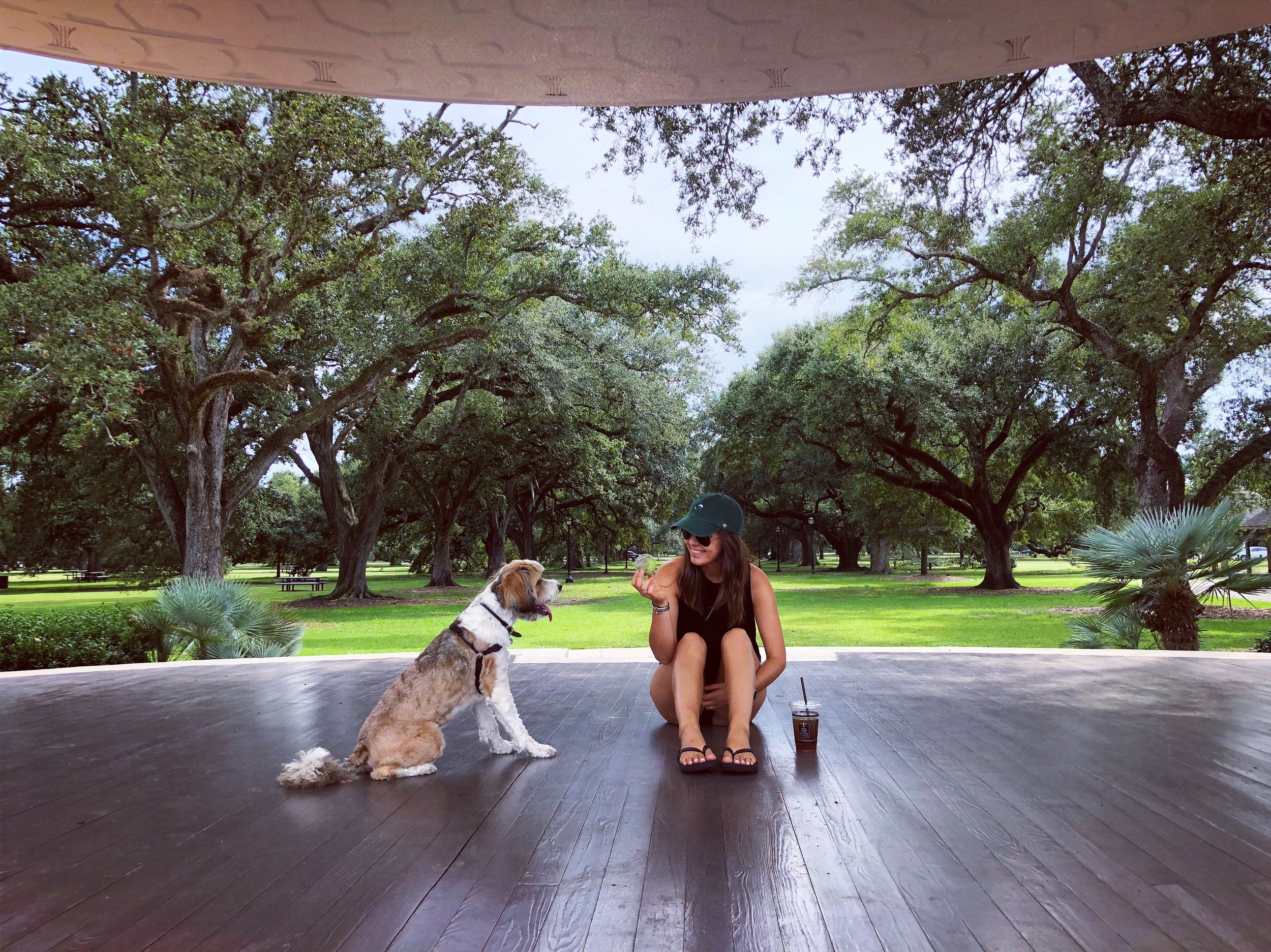Why I Stopped Hoping For Good Days and Started Looking for Good Moments
For a long time, I labeled my day as “good” or “bad” based on how severe my migraine pain was. It was all or nothing thinking, how could I call a day “good” when it started with four hours in bed and severe pain? Or similarly, if I had a good day but the evening ended poorly, that whole day would be labeled as obviously not “good”, right?

Even on my worst days, there are good moments where I am grateful for my support team
One of the most challenging aspects of living with chronic illness for me has been to learn how to accept variable symptoms as a reality of my world on both good days and bad days. I learned to shift away from viewing chronic illness as something that I must heal from completely in order to really be living my life. We are taught so young that being sick is “bad”. Staying home from school because you have a cold or stomach flu is definitely not good (albeit as a kid it sometimes felt fun), and generally things aren’t considered better until you are back to normal life again.
However, chronic illness throws you in to a normality vortex, where the paradigm of sickness must change. Where all of the rules you once learned about good and bad, sick and healed, productivity and worth are flipped on their head and swirled around like clothes in the washer on a heavy spin cycle. It’s confusing, disorienting and often extremely frustrating.

My favorite good moments buddy
One of the most powerful mindset shifts I’ve made in coping with chronic illness, has been letting go of labeling my days as good or bad. Instead, I accept that most of my days have some good moments and some bad moments. Certain days, the good moments outweigh the bad ones, and other days I have to really look closely for the good sprinkled in between the shitty. But the best part about shifting my perspective has been that the more I look for good moments, the more I am able to see them.
You’ve likely heard the saying, “where your attention goes, energy flows”. As cliche and corny as it might sound, it is so real. Being mindful about noticing good moments has made an immeasurable impact on my day-to-day living. It can be exhausting to constantly be tallying up your good days and bad days, and downright depressing when the bad days pile up, heavily outweighing the good.
Letting go of labeling my days allows surrender to come more easily. I show up more fully for each sunset I get to watch, each warm cup of coffee I sip outside, and for each opportunity I have to move my body in ways that feel good, like stretching or walking. I also am able to let go of the bad moments more easily. It doesn’t mean that they aren’t difficult to deal with, and sometimes my emotions are so strong during those moments that it feels like the bad moments are winning. Surrendering to this feeling, even temporarily, generally allows me to move through it more quickly.

See the light, be the light
One of my favorite resources for developing coping tools which has helped me in shifting my mindset is “Acceptance and Commitment Therapy” (ACT, this is the workbook I used). It is something I worked with my chronic pain psychologist on several years ago, and continue to use.
In a nutshell, for me, ACT is all about committing to accepting each day as it is and myself exactly the way I am, while believing and hoping that I can and will work toward wellness. For a long time, this idea seemed truly insane to me and I really resisted it.
It felt like someone was asking me to walk an impossible tightrope. So you want me to just be okay with feeling terrible and not attached to getting better, but continue to be hopeful and optimistic…umm…what…?
However, the more time I spent with these ideas, the more I understood how I could incorporate them into my life. I think ACT works differently for each person, but for me, learning to accept the basic premise of this therapy has definitely given me a way to find peace and has allowed me to let go of some of the attachment I used to have to the labels “good days and bad days”, or even good moments and bad moments.
Learning about surrender and attachment has been one of the hardest lessons for me while living with chronic illness. I completely understand that it’s a place we must arrive to individually and in our own timing. For me, letting go of good days vs. bad days and searching for good and bad moments came from feeling exhausted of fighting and losing to bad days so often. It took the pressure off, and opened me up to more good. If you aren’t there, I totally understand. Either way, I hope your day today has at least a few very good moments!
October 15, 2018
Meet Natalie
I share each step along my road to wellness and healing and hope that in doing so I can inspire you along your own path. Thank you so much for being here.
Thank you so much for this. I needed this post. I bought the workbook. Thank you for your continued support to all us warriors!
Absolutely agree with you! The first couple of years that I lived with chronic daily migraine, I kept a "headache diary" as suggested by my doctors, but I eventually decided that it was upsetting me more than helping me. Counting up the number of days each month that I had a headache (basically all of them) just made me feel more depressed and hopeless. Now I’m working on what you suggest, being fully present for the good moments in each day as well as the bad. Good luck on your journey!